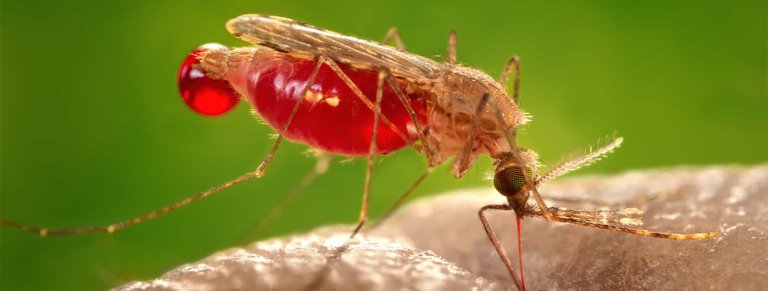Global Health Challenges: Malaria and Dengue Fever - A Comparative Analysis
I was seeing the news some months back, and I saw the reporter talking about malaria in Maryland, United States. He was concerned about it and I was scared for them all though, malaria is relatively common in Africa such as in my country Nigeria where hundreds of millions of people are infected annually, although we have treatments for the protozoan disease, the news have never taken malaria to be very serious the way the reporter talked about it in the foreign news I listened to.
It has been decades that the United States have been Malaria free but then there are always cases of malaria being recorded to about 2000 people, who are usually immigrants or foreigners who come into the country with the disease. There can also be cases of locally acquired malaria where a patient who hasn't traveled out of the country is infected by the disease, and develop symptoms of the disease. This can happen when the Anopheles mosquito pick up the parasite by biting and eating the blood of a recent traveler who returned to the country with the disease and then infect someone else by biting them.
Actually, I wanted to talk about Dengue fever but I had to touch the news I had then. There are different species of protozoans that causes malaria which are; Plasmodium falciparum, P. vivax, P. Malariae, P.ovale, and P.krowlesi. The anopheles mosquito prefer to lay their eggs in stagnant water body such as grassy ditches, fresh or salt water marsh, edges of streams and rivers, and rain pools and puddles. The worst protozoan that causes Malaria is P. falciparum but it is good that you know that they are all treatable. People who are infected exhibit symptoms like fever, chills, Nausea, muscle aches, vomiting, fatigue, and headache.
Now to what I wanted to talk about in this post; the Dengue fever. It is a mosquito borne viral illness caused by the Aedes species (Ae. aegypti or Ae. albopictus) of mosquito. This mosquito is known to carry other viruses such as the Yellow fever, Zika virus and so on. It is referred to as the break bone fever, due to its severity and painful symptom. The fever is predominant in over 100 countries including tropical and subtropical regions.
There are about 390 million infections of Dengue annually worldwide and 1/3 of those infections produce symptoms that manifest clinically while other experience subclinical symptoms. The symptom starts 4 to 5 days after an infected mosquito bites a person, and the symptoms can last up to 10 days with the most common symptom being high fever, followed by severe headache, vomiting, nausea, pain behind the eyes, joint and muscle aches, rash, mild bleeding from the nose or gums, and in severe cases, it can develop to become Dengue hemorrhagic fever or Dengue shock syndrome which is a life-threatening illness.
If the symptom starts within a week, a PCR test is done to test for the actual virus while if it is after a 7 days, a Serological test to measure the IgM and IgG antibodies is required. Even after the test, it is important to state that there is no specific antiviral treatment for Dengue fever instead symptoms are treated and complications are prevented. it is important that the patient is hydrated and rest properly. Aspirin and Ibuprofen will be prevented as it can increase the bleeding risk of the patients.
Preventing one self from mosquito bite is important and to do so you can put on long covering clothing material between the period of 6:00PM and 10:00PM, as well as 3:00AM and 5:00AM if you are going to be outside, this is because mosquitoes are more active at this time of the day. Also using insect repellents is good but it is not recommended for children below the age of 2 months. The Dengue fever vaccine which was approved in 2019 can be used but then it is not available for everyone and it is not found everywhere and the CDC advice the vaccine only for children age 9 to 16 years with laboratory evidence of a Dengue fever infection.
The global impact of diseases like malaria and Dengue fever extends beyond their geographical origins. While malaria continues to affect millions in Africa, occasional cases in countries like the United States serve as a reminder of the interconnectedness of our world. Dengue fever, with its severe symptoms, poses a significant health challenge in tropical and subtropical regions. It is essential to prioritize prevention through measures like avoiding mosquito bites and, when necessary, utilizing available vaccines. By understanding and addressing these diseases collectively, we can work towards a healthier and more resilient global community.
Reference
https://malariajournal.biomedcentral.com/articles
https://www.msdmanuals.com/professional
https://www.webmd.com/a-to-z-guides/dengue-fever-reference
https://www.who.int/health-topics/malaria#tab=tab_1
https://www.ncbi.nlm.nih.gov/pmc/articles/PMC10237628/
https://www.who.int/news-room/fact-sheets/detail/dengue-and-severe-dengue
https://www.cdc.gov/dengue/symptoms/index.html
https://www.ncbi.nlm.nih.gov/pmc/articles/PMC6617065/
https://www.cdc.gov/dengue/vaccine/index.html


Thanks for your contribution to the STEMsocial community. Feel free to join us on discord to get to know the rest of us!
Please consider delegating to the @stemsocial account (85% of the curation rewards are returned).
Thanks for including @stemsocial as a beneficiary, which gives you stronger support.